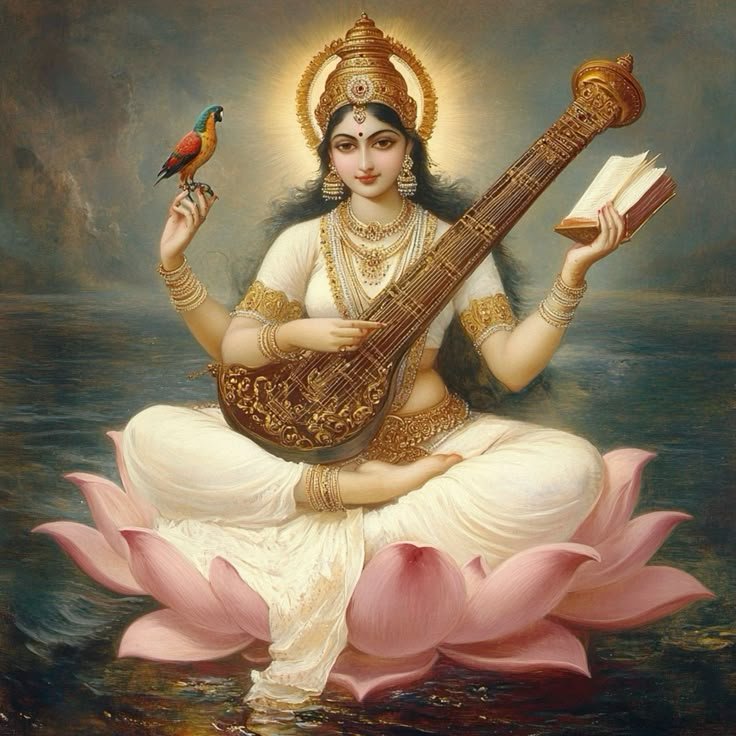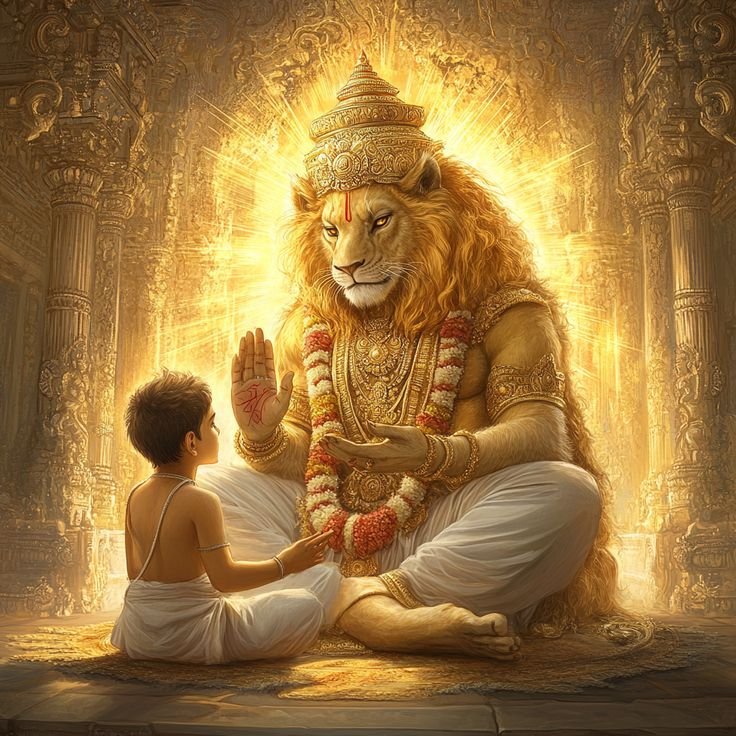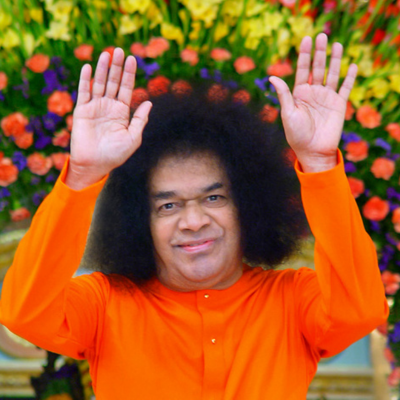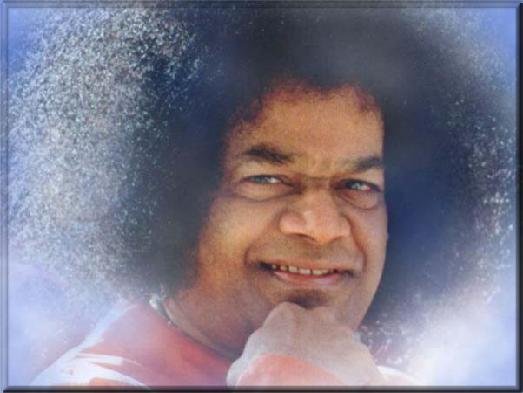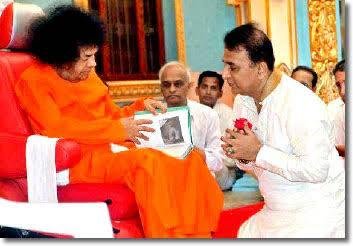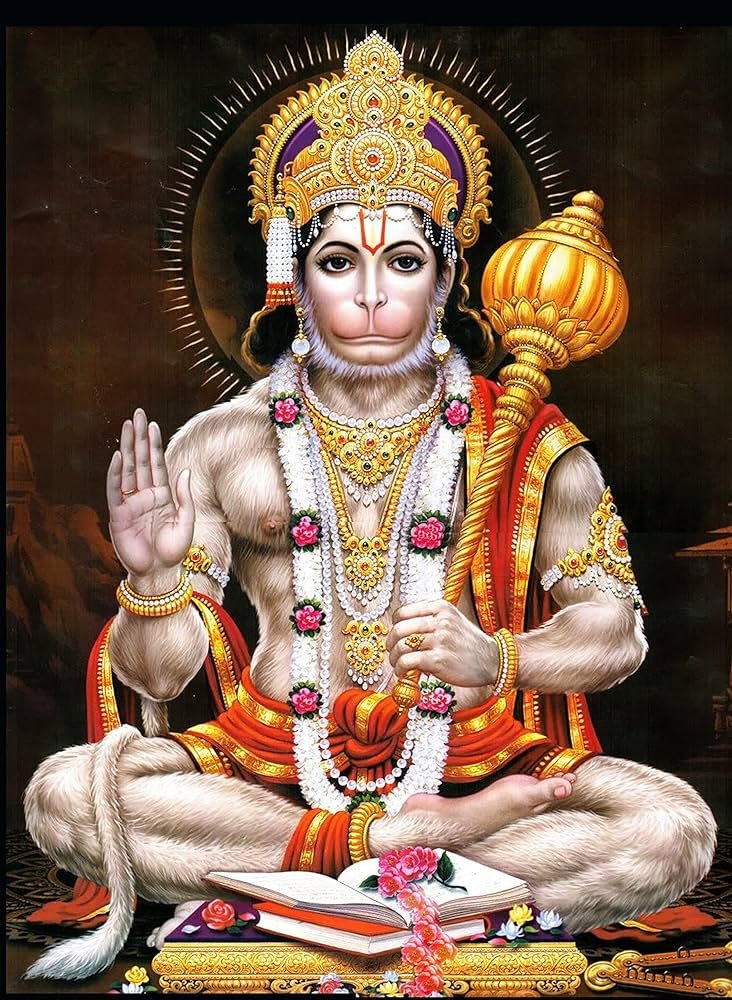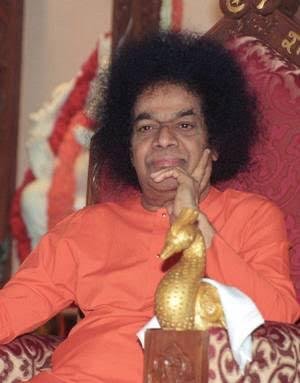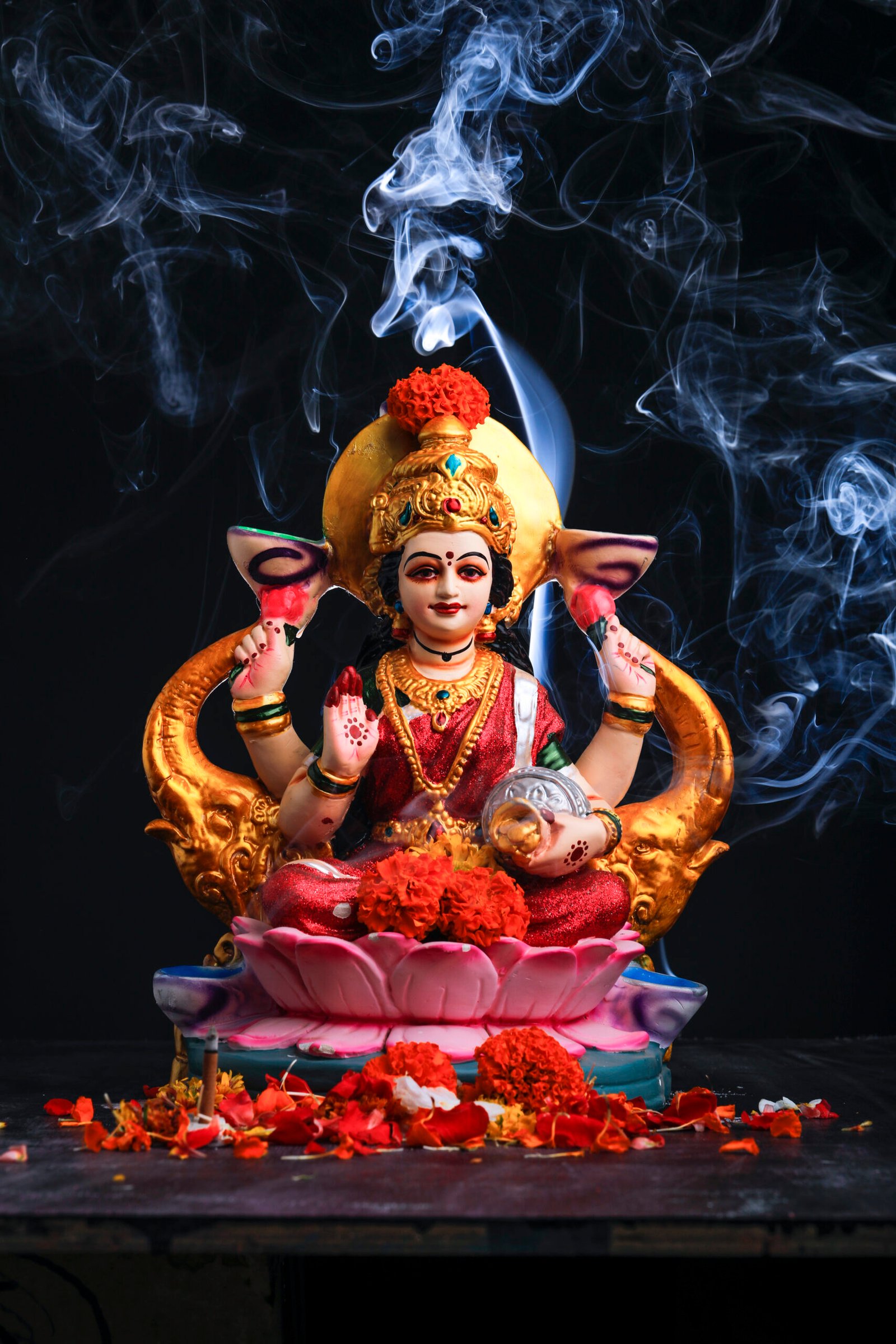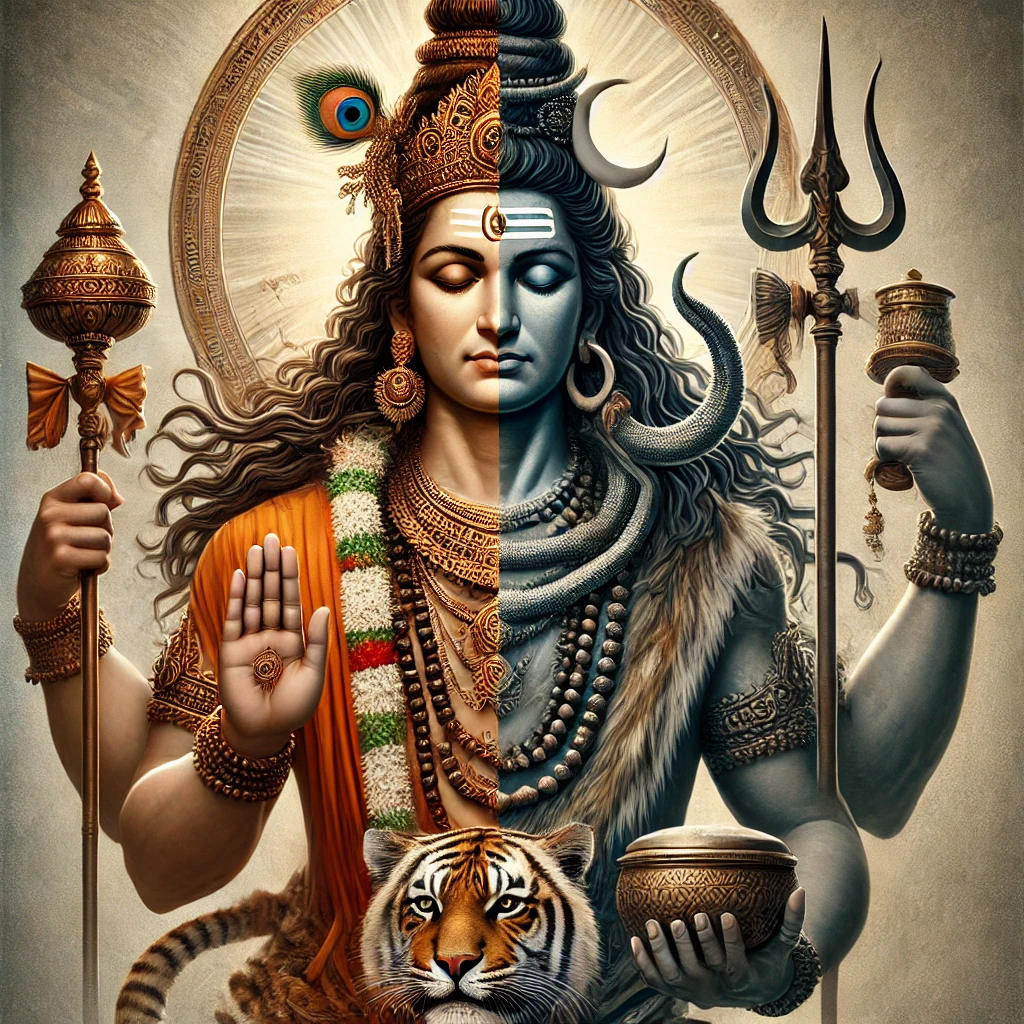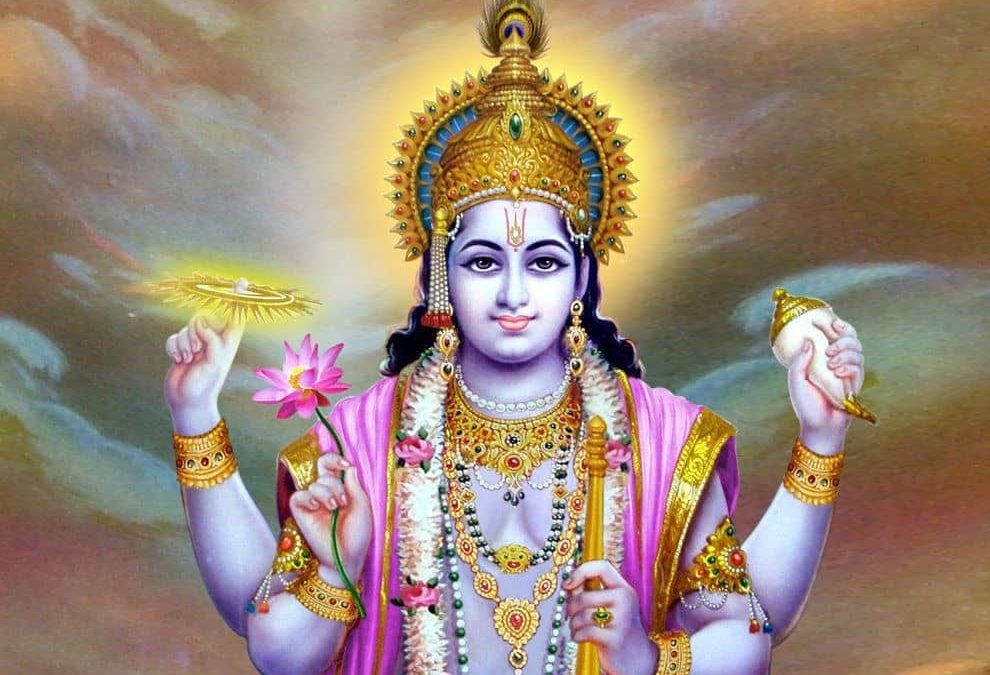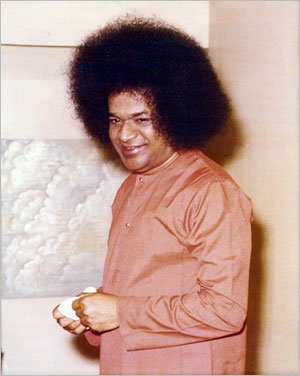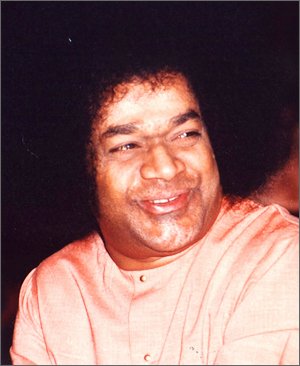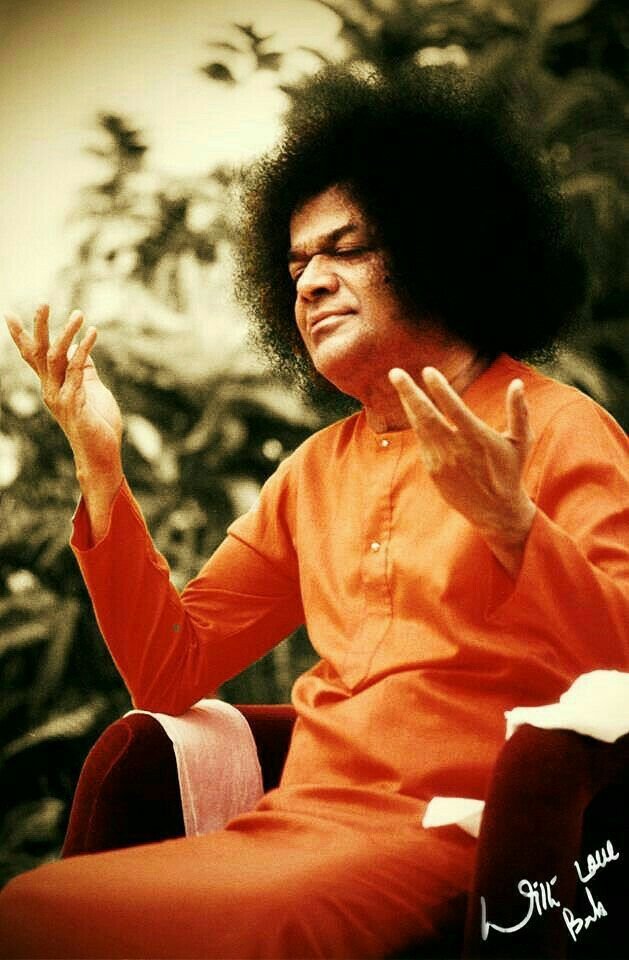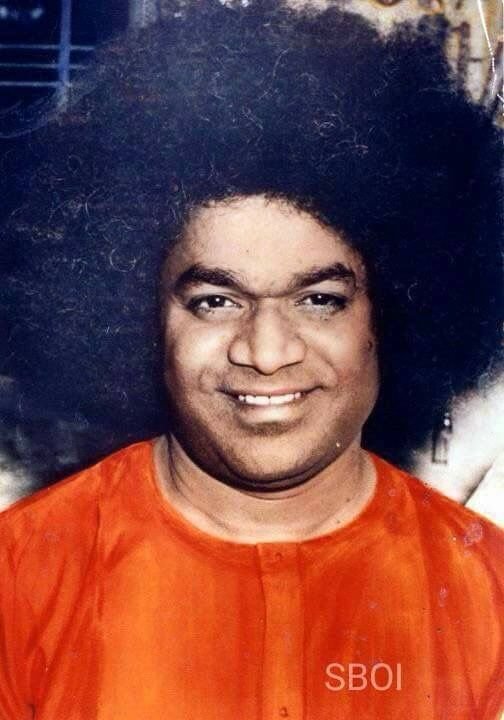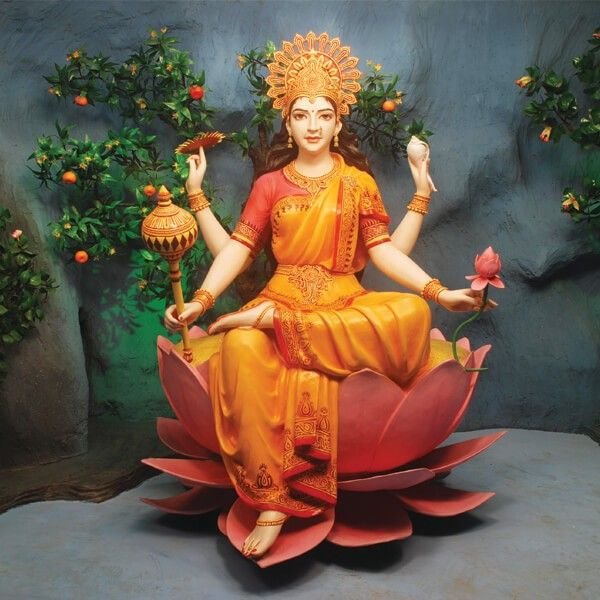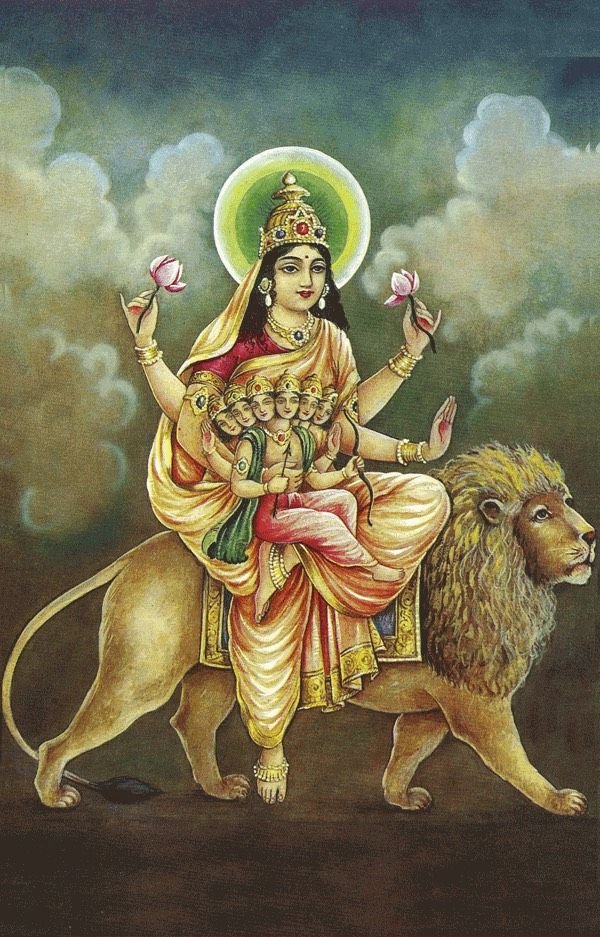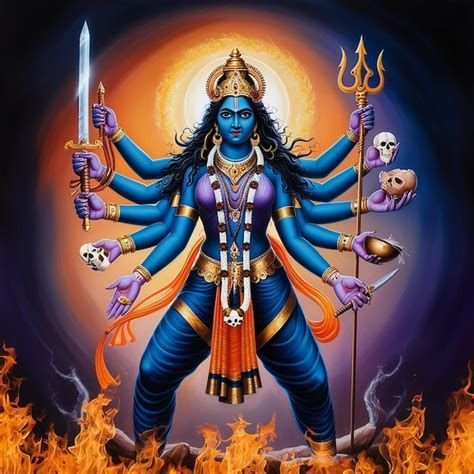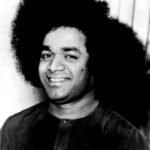CONVERSATIONS WITH SAI Satyopanishad
Satyopanishad┬Ā– Part Thirteen
Direct Directions from the Divine
CHAPTER 4 – THE OUTER DOOR
Prof. Anil Kumar: Swami! We have on one side the most invaluable spirituality, while on the other, we have also friends and relatives diverting our attention towards the world. No doubt, it is our fault to pay heed to their words. Yet, we face the conflict. What is to be done?
Bhagavan:┬ĀToday no one has true friends. Who are the friends of today’s world and of what sort are they? (Addressing the students) After all, your friendship lasts for two or three years until you complete your studies here and leave the hostel. Later, you separate from each other and go your own way. So long as you have money in your pocket and your father is in a good position, everyone would come to you and say “hello”, but the day your pocket is empty and your father retires, you will be left with none even to say ‘good bye’. Can you still call anyone your friend?
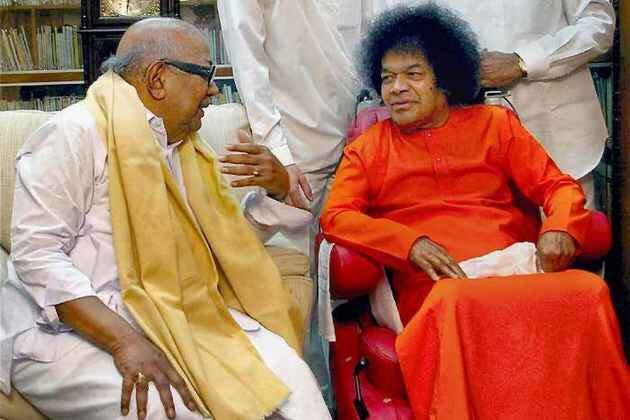
Friendship in Sanskrit is known as ‘maitri,’ pronounced as ‘mythree’. Here ŌĆśthreeŌĆÖ represents the harmony in thought, word and deed. Are there friends with this purity? Nowhere! Who is your true friend then? God is your real friend. God is the only friend for you, as He is always with you and in you: Don’t consider anyone else as your friend. Further, you should be very careful with people or your company. It is said, “Tell me your company, I shall tell you what you are”.
Therefore, all and sundry can’t be your friends. A warrior of outstanding stature and an expert in archery, Karna fell into disrepute because he was in bad company, and so he is branded as one among the wicked four, (the┬Ādustachathustaya) –┬ĀDuryodhana, Dussasana, Sakuni and Karna.
Prof. Anil Kumar: Swami! It is most unfortunate that there is no tangible change in our lifestyle though we have been here and listening to Your divine discourses over the years. We do not know the reason why it is so. Kindly show us the way.
Bhagavan:┬ĀLack of practice is the only reason. When there is no power supply and it is dark all over, can darkness be dispelled by just saying “lamp” unless you light it? The hunger of a starving man can never be satiated by merely looking at the menu of the most delicious items. He has to eat some of them to appease his hunger, shouldnŌĆÖt he? Can a sick man be cured of a disease by merely listening to the formula and composition of the medicine without his taking it?
Can the suffering of a poor man be alleviated with all the knowledge of economics and accountancy? Can you attain liberation (mukti)┬Āby reading books without practicing any of the instruction found therein?┬ĀInstead of saying something without doing, it is better to do and not say anything. I repeatedly tell you that until you practice what you say, there is little effect even after listening to talks for years together.
Take a small example here. Suppose you have with you a matchbox full of matchsticks and you want to light a lamp. You will now have to open the box, pick up a stick and strike against the side of the box to light it.
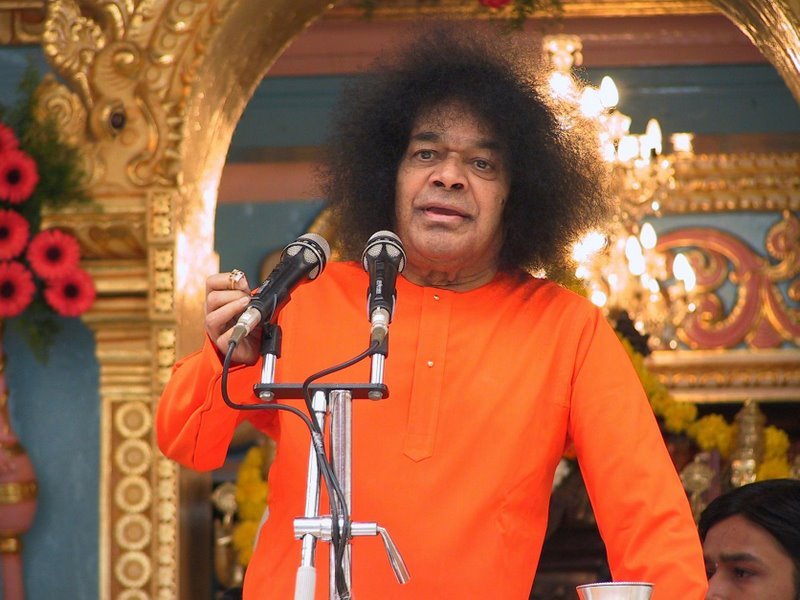
Similarly, you are drowned in the water of worldly desires and attachments. Therefore, you can’t light the lamp of wisdom. Dry your mind with all its limitless desires and thoughts of worldly comfort in the sunlight of renunciation; only then can you light the lamp of wisdom. You may be here listening to any number of discourses for any length of time, but you will not be able to achieve the expected results if you fail to translate the essence of one discourse into your daily life.
Dry your mind with all its limitless desires and thoughts of worldly comfort in the sunlight of renunciation; only then can you light the lamp of wisdom. You may be here listening to any number of discourses for any length of time, but you will not be able to achieve the expected results if you fail to translate the essence of one discourse into your daily life.
Prof. Anil Kumar: Swami! Because of wrong direction in our thinking, we feel dejected, restless and often fail in our attempts. Kindly show us the way out of it.
Bhagavan:┬ĀFor all these agitations, disturbances, disappointments, depressions and failures, what is responsible is your wrong way of thinking.┬ĀWhatever may happen in life, you should think, ŌĆ£This is good for meŌĆØ. You should know that everything that happens ultimately turns to be for your own good. This is called positive thinking. Today you are full of negative thoughts. How do you expect to know and experience God?

Your body, mind, intellect and the senses are completely negative, but your spirit, conscience, or┬Āatma┬Āis positive. God is your conscience. Do you know why you are not able to realise and experience God? It is entirely due to these negative thoughts and attitudes. So, positive thinking and positive actions are very essential for spiritual progress. Only then will you be peaceful, blissful and successful.
Take your own example.┬Ā(To the students)┬ĀIt is absolutely because of positive thinking that you are able to plan your academic programme and prepare yourself accordingly, as also aim to secure a good rank in the examinations and later a job. But planning to study whatever would fetch you a very fat salary, help you to go abroad, earn more money and marry a girl who would get you a large amount of dowry, is negative thinking.
Today we should fill our hearts with all positive thoughts like divine feelings, divine sentiments and good thoughts. Only then you will experience God, who is┬Āsatchitananda, the absolute positive principle. Therefore, it is necessary for you to take everything
as good for you.
A small story: there was a king who had a fancy to cut sugarcane all by himself to small pieces and eat it piece by piece. One day, while he was busy doing this, as ill luck would have it, he cut his finger. The minister, who was by his side, remarked, ŌĆ£Oh King! You have cut your finger. This is good for you.ŌĆØ On hearing this remark, the king grew wild, and thought, ŌĆ£What! How can this be good for me? What would the minister say if I lose my head too?” So the king ordered, out of fury and anger, that the minister be put in prison. Then, the minister said, ŌĆ£Oh King! This imprisonment is my good fortuneŌĆØ.
After some time, the king went hunting all alone to a nearby forest. He lost his way and was noticed by some tribals moving in that area. They were actually in search of a man suitable to be sacrificed to propitiate their deity at the end of their ritual. They caught hold of the king and took him to their head priest. After checking the king thoroughly, the head priest said, ŌĆ£We can’t kill this king and make an offering to our deity as one of his fingers is missing. A handicapped or crippled body is unfit to be an offering.ŌĆØ Saying so, he set the king free.

On the way, the king realised the truth of what the minister had said when he had cut his finger. He summoned the minister and said, ŌĆ£Oh Minister! How true is what you said! It is just because of the fact that I had lost my finger that the tribals set me free, unharmed. Now I have one doubt. You remarked that it was good for you when I put you behind bars. How has this imprisonment turned out to be good for you?” Then, the minister replied, ‘Certainly! Had I not been kept in the jail, I would have followed you. The tribals, after leaving you, would have caught hold of me, killed me and offered me to their deity in your place. So, this punishment has been to my good fortuneŌĆØ. This is positive thinking and attitude; then happiness and success will follow you.
akkaraku rani cuttamu
mrokkina varamiyani velpu
moharamuna tanekkina parani gurramu
grakkunna viduvangavalayu gadara sumati
This Telugu poem, means, ‘A relation who doesn’t come to your help in time of need, a God who doesn’t grant you boons even after you pray, a horse that doesn’t run in the battlefield, will have to be given up immediately, Oh! Wise one! Is it not so?’
Here, in this poem, first of all, know that it is addressed to a┬Āsumati, a wise one. It is true that you have to sever connections with a relation who doesn’t come to your aid in the hour of your need, give up the horse that fails to run in the battlefield, and forget a God who doesn’t grant you rewards even after you pray. Here, you should note one important point. Why don’t you think this way? Before you blame your relation that he is not of any help to you when you need him most, why don’t you for a while, ponder if you have ever been of any help to your relation when he needed you? A horse that doesn’t gallop in the field must be given up, but why don’t you question your competence in horse riding? God, who doesn’t respond to your prayers, is not God; but do you deserve what you desire and pray for? This poem is meant for that person,┬Āsumati, who thinks positively before blaming anybody. This is how your thinking process should be.
Prof. Anil Kumar: Swami! Now we understand that we should also have such intense faith in God. Naturally, our experience will be proportionate to the depth of our faith. Swami! Does God also respond commensurate with the intensity of our faith?
Bhagavan:┬ĀCertainly! If you put in┬Ākrsi, effort, you will earn God’s┬Ākrpa, grace. Moreover, with┬Ākrsi, effort, you can even become a┬Ārishi, sage.
A village boy happened to meet a scholar who said to him that God could be experienced through┬Āpranayama┬Ā(breathing exercises) and┬Ādhyana┬Ā(meditation). Hearing this, the boy began practising it most sincerely. Pleased with his devotion and sincerity, God manifested Himself before the boy and blessed him. The boy then told the scholar that he had seen God by doing what he asked him to do. The scholar could not believe it. He said, ŌĆ£Oh! Don’t talk rubbish! How is it that you could see God while I couldn’t, by practising┬Āpranayama┬Āand┬Ādhyana┬Āfor years? Don’t speak lies!”
Satyopanishad┬Ā– part fourteen
Direct Directions from the Divine
CHAPTER 4 – THE OUTER DOOR
Prof. Anil Kumar: Swami! In spite of a long period of desiring to be devoted to God, devotion somehow does not grow as intense as it should. What is essential to develop devotion of the magnitude and intensity expected of a true devotee?
Bhagavan: Here it is not time that matters. An iron ball in a pond, however long it might stay there, will never change. It will remain as it is without any change in it. You should know that it is transformation that is important. It is the goal you set for yourself that matters most. Until then, you should pursue your goal not mindful of the time involved.
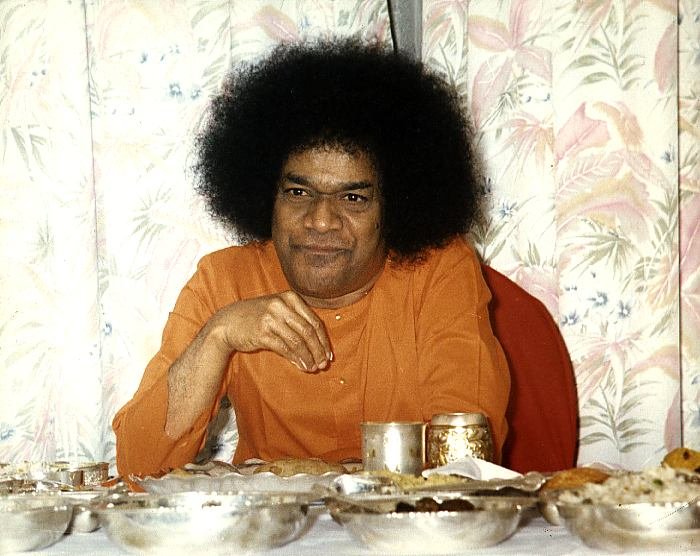
You know a lamp has a container, a wick, and oil. With a wick kept for long in water, you can never light a lamp even if you use any number of matchsticks. Impossible! What you should do is, take the wick out of water, keep it in sunshine for some time and dry it.
Then you will be able to light the wick easily. Here, the process of drying the wick in sunlight is renunciation. The procedure of lighting it with a matchstick is┬Āsadhana┬Ā(spiritual practice) and the light you get thereby is devotion or intense Love for God.
The procedure of lighting it with a matchstick is┬Āsadhana┬Ā(spiritual practice) and the light you get thereby is devotion or intense Love for God.
The lamp is the human body. The same process is applicable to those who are not devoted, as you have said. The more they are drenched and drowned in worldly life, the farther they are from God, the source of all light; they can never light the lamp of their life.
Dry it in the sunshine of detachment so as to be benefited by the light of devotion. Some people, in spite of a prolonged period of stay┬Ā(in the divine proximity) and divine association, are not devoted as much as they should be, for this simple reason: They lack detachment from worldly things. Therefore, intense devotion is not given to everybody.
Prof. Anil Kumar: Swami! We beg you to suggest to us a spiritual path that can be followed in the present circumstances. The situation around us seems to be dispiriting. Kindly give us the direction?
Bhagavan:┬ĀIt is said that man is the most precious being among all the living creatures. Therefore, it is imperative on your part to lead your lives in full realisation of the value of life. For example, in the kitchen you make┬Ādal┬Ā(an Indian side dish) to eat for lunch. If salt is added in excess by mistake, the┬Ādal┬Āloses its taste; it is unfit for consumption anymore. Even though the dish, if taken, is going to be digested in three hours or so, still, it is kept aside once it is not tasty. Then, how about a long life? Should it not be tasty?
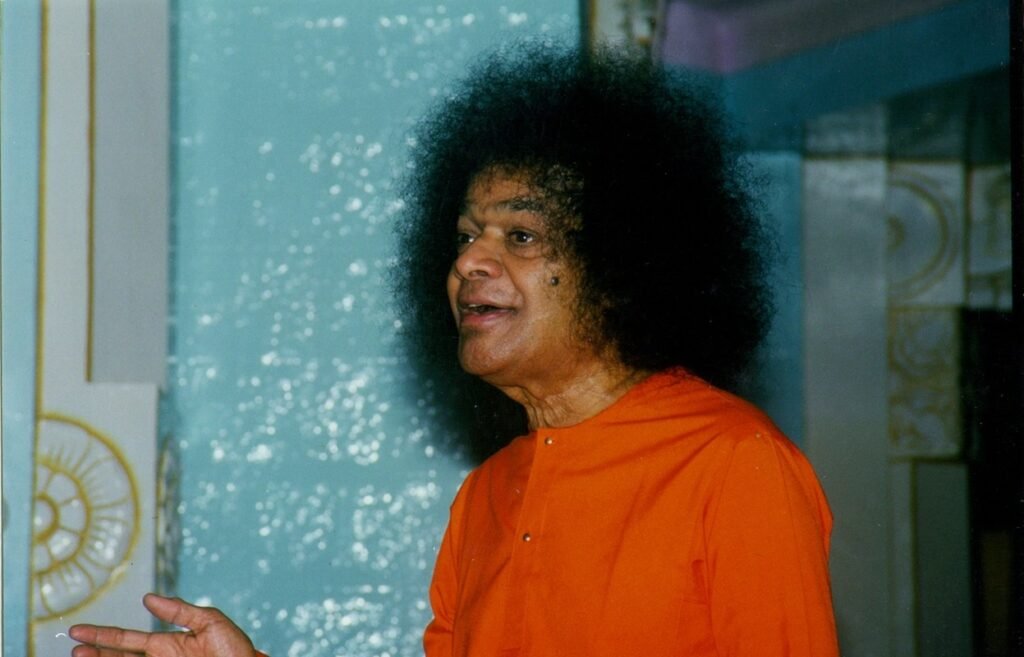
Suppose you are waiting at the bus stand to board the bus that takes you to your office. If the vehicle is delayed, you lose your patience. You start complaining, “What is this! Drivers don’t have a sense of responsibility in this country.
Conductors too don’t discharge their duties properly. The Road Transport Corporation is inefficient; the Government seems to be lenient towards them” and so on. A bus is lifeless; it is a vehicle and a means of transport. Man, on the other hand, is the embodiment of awareness: He is active and intelligent. If such a man forgets his human value, and leads life unbecoming of a human being, don’t you know that society will blame him?
Hence, you should always preserve and maintain human values. In fact, no spiritual path can be practiced with a sense of ego. Since all the methods adopted by you are done with your mind, ego, or ‘IŌĆÖness, you couldn’t progress spiritually till now.
You are the embodiment of love. Don’t merely be a lover and narrow down the vistas of love. To feel and experience the same divinity in all living beings is true love.
Some begin their spiritual practice, identifying themselves with the body –┬Āaham dehosmi. This will never take you to the true spiritual goal. The demons, Ravana, Kamsa, Bhasmasura, and others belong to this category. Some expect progress by changing even their faith and religion. It is not┬Āmatamu, religion, which is to be changed. It is┬Āmati, the mind, that has to be transformed. You are the embodiment of love. Don’t merely be a lover and narrow down the vistas of love. To feel and experience the same divinity in all living beings is true love.
One day, Krishna decided to lead his cows to a nearby forest for grazing. He asked Mother Yashoda to permit him to do so. She said, “My dear son! All along the way to the forest, you find rocks, thorny bushes and stones. It is better you go tomorrow. I will get your footwear ready for you”. The smiling Krishna said, “Mother! Do I need footwear? Why and for what? Cows don’t have any footwear. Then, why should there be footwear for me alone?”
Yashoda replied, “Look! They are animals. We are human beings. We need footwears.” Krishna responded with a fitting reply, “Mother! You mean to say cows are ordinary and simple animals. Do we have as much gratitude as they have? They eat grass and yield milk.

In agriculture, the land is ploughed well, watered, manured, weeded, and finally the seeds are sown. The human heart, likewise, is a field. This has to be tilled and watered with love. You have to take the plough of self-enquiry to plough the field of the human heart. You have to raise the fence of discipline. Bad qualities are the weeds that have to be removed totally. Then you can cultivate the crop of bliss. It is enough if you have a small area of fertile land. Why have many acres of barren land?
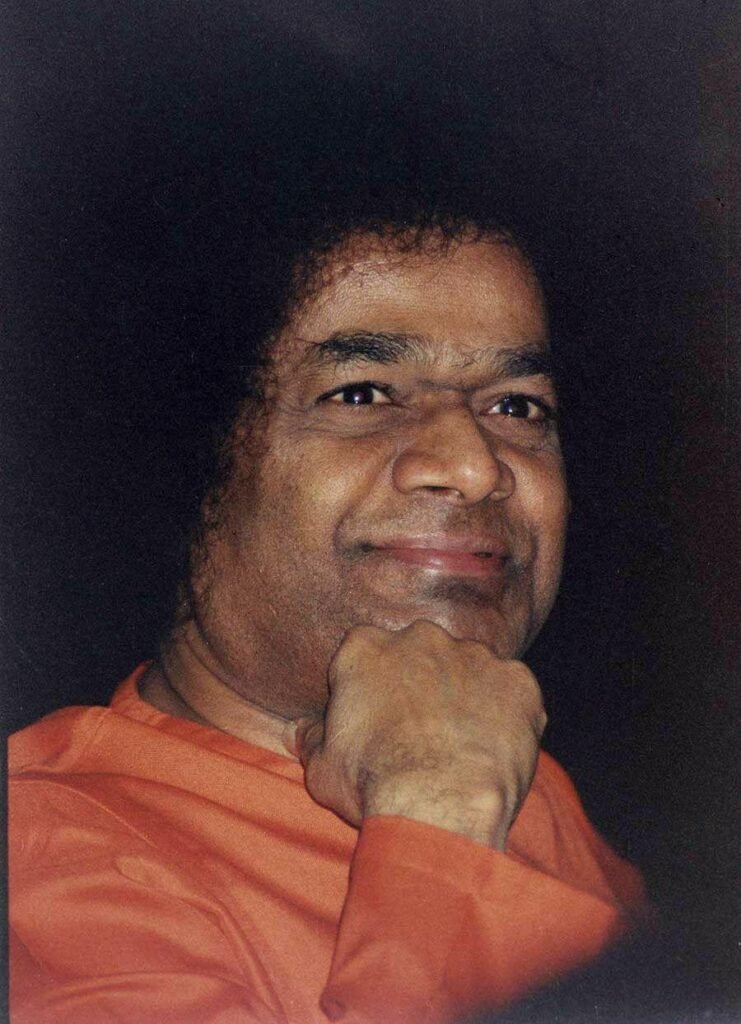
A small example: You see an orange fruit. It is covered with a green bitter rind or skin. This is ego or pomp. You find hard seeds inside; they are the wicked thoughts and bad actions. Then you find the fibrous soft pulp; this is attachment. In order to have the sweet juice you need to remove the outer bitter skin, the hard seeds and squeeze the soft fibrous pulp.┬ĀThe sweet juice is love that you need. This is the essence,┬Āraso vai sah.
You need both the positive and the negative wires for the electric current to flow. The negative may be very powerful. It is powerless without joining the positive. The fan and bulb may be very good and of high voltage. But without power supply they are useless. This current is positive. Divinity is positive. The bulb and the fan are merely negative. All that pertains to the name and form is negative. Your journey on the spiritual path will be successful only if there is love. You have to reform yourself first. This transformation is not taking place today.
All that pertains to the name and form is negative. Your journey on the spiritual path will be successful only if there is love. You have to reform yourself first.
You have to face and resolve all problems of life and proceed in your┬Āsadhana. Follow your own experience and develop faith (vishvasa) thereby.┬ĀCan you breathe (shvasa) on behalf of anybody? You see with your own eyes, don’t you? The eyes of the other man may be bright and beautiful. You cannot see through his eyes. Can you close your eyes and see through the eyes of somebody else? You have to stand on your own legs and not on anybody else’s.
Prof. Anil Kumar: Swami! At times it appears that others may influence and lead us to a total change in our life style, making us ask ourselves the question, ‘Why should we not be like others? Why should we adopt this special type of living?’ I am afraid we may change! What is to be done now?
Bhagavan:┬ĀThis is not proper and can’t be justified either. In fact, it is your innate weakness that brings about change. If your faith is strong, and your values are deep-rooted, none can do anything to you. You will not change at any time. But if your faith is weak, then the values you speak about are only superficial.
Under any circumstances, you should not change your moral and spiritual way of life. If anyone comes to you and says, “There is no God”, how should you reply? You should say, “You may deny your God, but what right do you have to deny my God? How can you negate my faith and devotion?” You should never change your convictions.
“There is no God”, how should you reply? You should say, “You may deny your God, but what right do you have to deny my God? How can you negate my faith and devotion?” You should never change your convictions.
A boy saw a scorpion that fell into a tank and was struggling to come out. He went and picked it up. The scorpion stung him. Immediately he dropped it back into the tank. On seeing it struggle there, he picked it up to save it. But it stung him again.
The process went on and on. An elderly person watching the whole scene asked him, “Oh boy! Why do you want to save the scorpion when it is stinging you?” He replied, “Sir! The scorpion is teaching me a good lesson. When it is not giving up its own nature of stinging, why should I give up my nature of protecting one struggling for life?” So, you should not change your nature.

Maitreyi, who felt very sad on hearing the difficulties that the Pandavas were passing through in the forest Kamyavana, started thinking like this: “It is true that noble people suffer! What a lesson does a parrot in a cage teach us! A crow flies freely, but it doesn’t mean that we are prepared to lead the life of a crow rather than that of a parrot in a cage. Will a parrot ever become a crow?” Similarly, we should not change our path.
In the army, we have thousands of soldiers. But, the Army Chief is the only one who commands. Captains are always a few while their followers are many. It is they, the few, who train the many. This is possible if you don’t leave your path.
Prof. Anil Kumar: Swami! You have complete faith in us. But, our faith in you is wavering; it is not consistently steady and deep. Why is this so?
Bhagavan:┬ĀEko vasi sarvabhutantaratma –┬ĀGod is in everyone moving about with different names and forms.┬Ādeho devalayah prokto jivo devas sanatanah –┬Āthe body is the temple. The individual┬Ājiva┬Āis none other than Deva, the ancient and eternal,┬Āsanatana. It is only one God who has manifested Himself as many.
I am present in all of you. Since I know this truth, I have faith in you. But you consider yourself separate from me, and so your faith is not strong, deep, and unwavering. In fact, I can change you all by Myself. But I don’t do it that way. I want to bring about your transformation through and by you.
I am present in all of you. Since I know this truth, I have faith in you. But you consider yourself separate from me, and so your faith is not strong, deep, and unwavering. In fact, I can change you all by Myself. But I don’t do it that way. I want to bring about your transformation through and by you.
Prof. Anil Kumar: Swami! We are dissatisfied and unhappy when our desires are not fulfilled. Why should it happen to devotees?
Bhagavan:┬ĀFirst, put a question to yourself. Can you call yourself a devotee if your sense of happiness and gratification depends on your fleeting desires? In fact, ask yourself, if you have followed the command of God, if you have made Him happy with your faith and devotion. When Swami is happy with you, the whole world will be happy with you. When you displease Swami by your conduct, everyone else will be displeased with you. Act according to Swami’s teachings. Everything will then happen in your favour conferring peace and joy on you.


